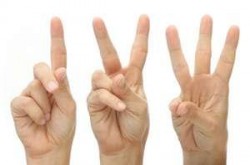Finally a bit of news this week, with everything from The Pirate Bay to Netflix to Star Wars. Speaking of Star Wars, I’m almost to the point of hyperventilating with excitement whenever I think of the new movie, coming out in only 82 days. A new Star Destroyer, new X-Wing and Tie Fighters, new droids, villains, heroes, and rumours of teary eyed moments … cannot wait!


The reasons for the Pirate Bay going offline for so long has finally been explained
A Swedish police raid last year on a hosting facility, where the police seized servers belonging to several top piracy sites, also took down The Pirate Bay for three months. But it has emerged this week that it wasn’t the raid that caused the servers to go down for the world’s most popular piracy site, at least not directly.
While one TPB server was seized during the raid (which also took servers belonging to EZTV), it was only used for moderator discussions and it being down did not affect TPB operations. What it could have affected, however, was the operational security of the site – with potentially sensitive information being stored on the server that was now in the hands of Swedish police.
The ever paranoid (with good reason) TPB team decided to move cloud providers, and it’s here that the team ran into a hitch, which turned into a code re-write, resulting in the three months hiatus.
The cryptic clues being left on the site’s home page, the team says, was just a joke, to drive the conspiracy theory nuts crazy.
All of this has been just made public, says the TPB team, because it’s only now that via internal audits and other security checks that they are absolutely certain nothing of importance was stored in the seized server. This is also why when the site first came back up, certain moderator features were disabled and most of the moderators were kept in the dark about the site’s plans.
In other Pirate Bay news, you might be seeing some different kinds of ads on The Pirate Bay and other piracy sites. Most likely ads that are less mainstream than right now (if that’s even possible, for some of the sites out there). This is because advertisers have started to boycott advertising on sites like The Pirate Bay, even though these sites are often the highest trafficked ones, and the best way for some advertisers to reach out to potential customers.
From an advertisers’s perspective, it’s isn’t always easy to pick the sites you want your ads to be displayed on. It’s often do so algorithmically, based on matching the right ads with the right users. Advertising networks can deny website publishers whose content doesn’t fall within their guidelines, but these same networks also include ads from third party networks that may not have such stringent policies (or do not enforce them). Advertisers (and publishers from the other side) can maintain some kind of a blacklist, but there are ways around that too.
The idea is that by removing ad revenue from piracy sites, it can make sites too expensive to operate, or take some of the motivation away from people who operate sites like these. But there are always advertisers seeking eyeballs (or click-throughs), and there are always plenty of less than scrupulous operators out there looking for ad space, meaning it’s unlikely that this latest plan will do any major harm to piracy sites.

Spammers find a new way to promote boner pills – via Google’s DMCA tool
Speaking of unscrupulous operators, spammers have found a new way to spray paint their tainted links onto the world wide web canvas – via Google’s DMCA take-down request tool. Google publishes all DMCA requests, even the bogus ones, on their Chilling Effects website. So by filing fake requests, spammers can get a page on the Chilling Effects website that contains all the links and keywords they want to promote. Of course, almost nobody ever visits these pages, and search engines, at least the good ones, wouldn’t really take these pages into consideration when running their ranking algorithms. So just exactly what spammers get out of these, I don’t know.
I do know from my own experience running this site that spammers will pretty much fill in any kind of form that you publish, regardless of whether these forms actually lead to anything helpful for them. And I’m sure there are those that sell tools and scripts that promises to submit people’s links to 1,000’s of websites, with the Google DMCA request tool form being one of these submitted sites.


Will Disney give people what they want, and release us the theatrical cuts to the original Star Wars trilogy?
Could it finally happen? Ever since Disney bought out George Lucas for all the Star Wars stuff, there’s been hope that the theatrical cut of the original trilogy movies would see a Blu-ray and DVD release, something that Lucas would never have allowed. Rumours abound that Disney, keen to cash in more on Star Wars fever, is working to get the unaltered originals released. The rumour comes via director John Landis (yes, the Blues Brothers John Landis) that Disney are indeed working on restoring and releasing films, which might be tricky considering 20th Fox still owns the releasing rights to the already released movies until 2020 at least.
There are also rumours that the Star Wars films may be coming to Netflix, to Latin America only though. This rumour is what helps me segue into the next story about Netflix’s predictions that all TV will be on the Internet within 10 to 20 years. And not only that, most stuff will be on demand in lieu of linear broadcasting. The writing is definitely on the wall for linear broadcasting – letting some suits at a TV network pick and choose what you watch and when, just seems like such an outdated concept.

The PS4 is getting a price cut soon, according to none other than Xbox boss Phil Spencer. But far from panicking, Spencer says the Xbox One’s strong holiday line-up (including new Halo, Forza, Tomb Raider and Gears of War games) will help the Xbox One win one more holiday sales period (it won the last two, at least in the US). And even if the Xbox One doesn’t end up being number one, Spencer says all of this price competition will still be good for game companies, as the super deals on offers will drive sales up across the sector, even if the PS4 ultimately ends up on top.
——
That’s another week done and dusted. See you next week, when there will only be 75 days until The Force Awakens.
![]()











